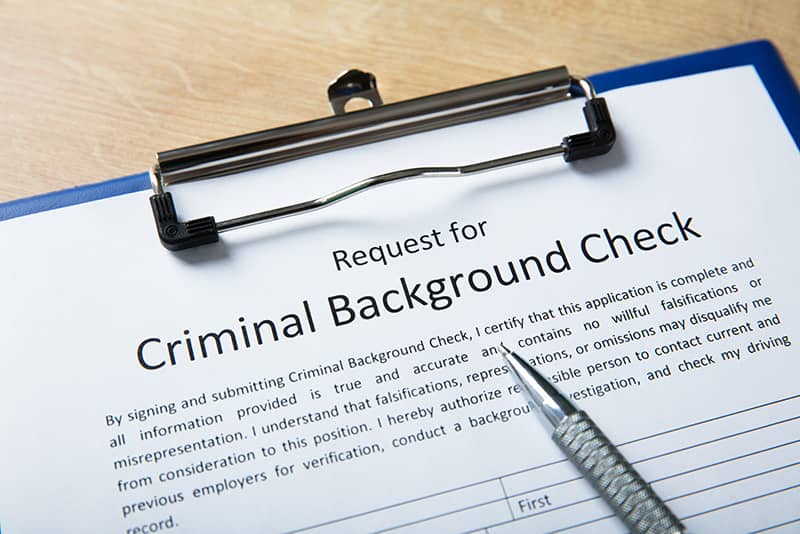How to Remove a Criminal Record from a Background Check

If you’ve ever gone through a background check for employment, housing, or any other purpose, you know how nerve-wracking it can be if you have a criminal record. Even a minor offense from years ago can come back to haunt you, making it difficult to move forward with your life.
But here’s the good news: in many cases, it’s possible to remove a criminal record from your background check. In this article, we’ll walk you through the process step by step.
Criminal Records and Background Checks
A criminal record includes any arrests, charges, or convictions, whether they’re misdemeanors or felonies. When you undergo a background check, this information can show up and raise red flags for potential employers, landlords, or others who are reviewing your record.
There are several different types of background checks, and they can pull information from various sources. Some background checks only look at public records, while others may delve into private databases. Depending on the type of check and the databases used, your criminal record could be holding you back without you even realizing it.
The Long-Term Impact of a Criminal Record
Having a criminal record can lead to a host of challenges, both in the short term and the long term. Some of the most common issues include:
- Difficulty finding employment, as many employers are hesitant to hire someone with a record
- Struggles securing housing, as landlords may view you as a risk
- Obstacles obtaining loans, professional licenses, or other financial opportunities
These challenges can persist for years, even if your offense was relatively minor or if you’ve made significant efforts to turn your life around. That’s why it’s so important to understand your options for removing a criminal record from your background check.
Eligibility for Removing a Criminal Record
Not everyone is eligible to have their criminal record removed, but many people are. The specific requirements vary depending on the state you’re in and the details of your case. In general, the following factors will determine whether you’re eligible:
- The type and severity of the offense
- How much time has passed since the offense occurred
- Whether you’ve completed all the requirements of your sentence, such as probation and paying fines
In Utah, for example, most misdemeanors are eligible for expungement three years after the case is closed, while felonies typically require a seven-year waiting period. Some offenses, such as violent felonies or sex crimes, may not be eligible at all.
In Nevada, the rules are a bit different. If your case was dismissed or you were found not guilty, you can petition to have your record sealed immediately. For misdemeanors, you typically need to wait 1-2 years after the case is closed, while felonies usually require a 2-5 year waiting period. Again, some offenses may not be eligible.
Check the specific laws and regulations in your state to determine whether you qualify to have your record removed. An experienced criminal defense attorney can help you understand your options and guide you through the process.
The Expungement Process
If you’re eligible to have your criminal record removed, the next step is to go through the expungement process. Expungement is essentially the legal process of erasing or sealing your record, so it no longer shows up on most background checks.
What’s the Difference Between Expungement and Sealing?
You may have heard both of these terms used interchangeably, but there is a slight difference. When a record is sealed, it still exists, but it’s no longer publicly accessible. When a record is expunged, it’s completely erased, as if it never happened. However, both processes can effectively remove the offense from your background check.
Steps to Expunge Your Record
The expungement process can be complex, and it varies depending on your location and the specifics of your case. However, the general steps are as follows:
- Gather all necessary documents related to your case, including court records and proof that you’ve completed your sentence.
- File a petition with the court requesting expungement. This typically involves submitting a written request and paying a filing fee.
- Attend any required court hearings. The judge will review your case and make a decision on whether to grant the expungement.
- If your petition is granted, the court will issue an order to expunge your record. You’ll need to notify all relevant agencies to ensure your record is removed from their databases.
This process can be tricky, especially if you’re not familiar with the legal system. That’s where a criminal defense attorney can be invaluable. They can help you gather the necessary documents, file your petition, and represent you in court to give you the best possible chance of success.
Alternative Methods for Clearing a Criminal Record
Expungement isn’t the only way to clear your criminal record. Depending on your situation, you may have other options available, such as:
Record Sealing
As mentioned earlier, record sealing is similar to expungement, but the record still exists in a sealed form. This can be a good option if you don’t qualify for expungement or if you want to keep the record available for certain limited purposes.
Pardons and Clemency
In some cases, you may be able to obtain a pardon from the governor or the president. This is essentially an official forgiveness for your crime, and it can help to restore certain rights and opportunities. However, pardons are typically reserved for exceptional circumstances and can be difficult to obtain.
Certificates of Rehabilitation
Some states offer certificates of rehabilitation, which demonstrate that you’ve been rehabilitated and are committed to leading an upstanding life. These certificates can be helpful in securing employment or housing, even if your record hasn’t been expunged.
Updating Background Check Information
Once you’ve successfully had your criminal record expunged or sealed, make sure that all relevant agencies and databases are updated with the new information. This can include:
- Law enforcement agencies, such as the police department or sheriff’s office
- Court records and databases
- Private background check companies that may have obtained your information in the past
It’s also worth noting that under the Fair Credit Reporting Act (FCRA), you have the right to dispute any inaccurate or incomplete information on your background check. If you find that your expunged record is still showing up, you can contact the background check company and request that they remove it.
Challenges and Limitations of Removing a Criminal Record
While expungement and other methods of clearing your record can be highly effective, there are some limitations and potential challenges.
Incomplete or Unsuccessful Expungement
In some cases, your petition for expungement may be denied. This can happen if you don’t meet the eligibility requirements, if you haven’t completed all the necessary steps, or if the judge decides that expungement isn’t appropriate in your case. If your petition is denied, you may be able to appeal the decision or explore other options for clearing your record.
Persistent Online Records
Even if your official criminal record has been expunged, there may still be online records or news articles that mention your offense. These can be more difficult to remove, as they’re not controlled by official government databases. In these cases, you may need to work with a reputation management company or take steps to push down negative search results.
Get the Help You Need to Clear Your Record
Removing a criminal record from your background check can be a game-changer, opening up new opportunities and allowing you to move forward with your life. But the process can be complex and overwhelming, especially if you’re trying to go it alone.
At Benjamin Durham Law Firm, we have extensive experience helping clients clear their criminal records and get a fresh start. We understand the ins and outs of the expungement process in Nevada and Utah, and we know how to give you the best possible chance of success.
If you’re ready to take control of your future and leave your criminal record behind, we’re here to help. Contact us today for a consultation, and let us guide you through the process of removing your criminal record from background checks. Don’t let a past mistake hold you back any longer.



